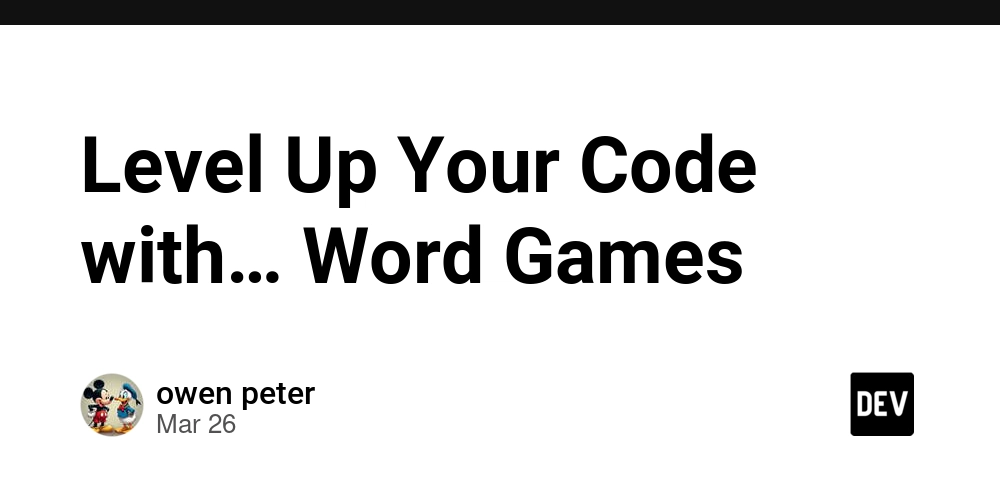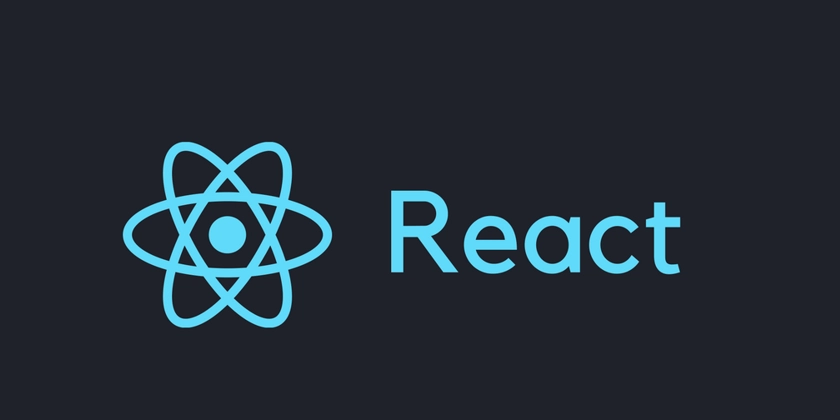Level Up Your Code with… Word Games
Okay, hear me out. As developers, we're all about logic, problem-solving, and thinking outside the box. Turns out, the skills we hone playing word games can actually make us better programmers. Yep, I said it. While it might seem counterintuitive to spend time wrangling words when you should be wrestling with code, the cognitive benefits are surprisingly transferable. Let's dive in. 1. Algorithmic Thinking: More Than Just Loops and Conditionals At their core, word games are often exercises in algorithmic thinking. Take Wordle, for example. You start with a guess, get feedback, and then iteratively refine your approach based on that feedback. Sound familiar? This is precisely the kind of process we use when debugging code! We identify a problem, test a solution, analyze the results, and repeat until we've cracked the bug. Finding 5 letter words that fit a pattern? It's essentially pattern matching with linguistic data instead of, say, JSON. The same problem-solving skills apply. 2. Pattern Recognition: Finding Order in the Chaos Developers are constantly looking for patterns: patterns in code, patterns in user behavior, patterns in data. This ability to identify and leverage patterns is crucial for writing efficient, maintainable code. Word games, especially those involving anagrams or crossword clues, are fantastic exercises in pattern recognition. You're forced to analyze seemingly random arrangements of letters and identify the underlying structure. This hones your ability to spot subtle relationships and predict outcomes, skills that are invaluable when working with complex codebases. 3. String Manipulation: A Programmer's Best Friend Let's be honest, dealing with strings can be a pain. But it's also a fundamental aspect of programming. From parsing user input to generating reports, we're constantly working with text. Word games, particularly those that involve finding words with specific prefixes, suffixes, or containing certain letters, provide a fun and engaging way to practice string manipulation techniques. Think of it as a low-stakes way to sharpen your skills before tackling that gnarly regex. Tools like the ones you can find on 5letter.org can even help you experiment and visualize these patterns. 4. Expanding Your Vocabulary: Communicate Clearly (and Impress Your Team) Clear communication is essential for effective teamwork. Having a robust vocabulary allows you to express your ideas with greater precision and avoid ambiguity. This is particularly important when writing documentation, explaining complex concepts, or collaborating with colleagues. Playing word games exposes you to a wider range of words, expanding your lexicon and improving your ability to articulate your thoughts effectively. 5. Taking a Break: Recharging Your Brain Coding can be mentally demanding. Taking regular breaks is crucial for preventing burnout and maintaining focus. Word games offer a fun and engaging way to step away from the screen and recharge your brain. Instead of mindlessly scrolling through social media, why not challenge yourself with a quick game of Scrabble or try to solve a crossword puzzle? You'll be giving your brain a break while simultaneously sharpening your cognitive skills. So, the next time you feel like procrastinating, don't feel too guilty. Playing a word game might just be the key to unlocking your inner coding ninja! What are your favorite word games? Share them in the comments below! ??

Okay, hear me out. As developers, we're all about logic, problem-solving, and thinking outside the box. Turns out, the skills we hone playing word games can actually make us better programmers. Yep, I said it.
While it might seem counterintuitive to spend time wrangling words when you should be wrestling with code, the cognitive benefits are surprisingly transferable. Let's dive in.
1. Algorithmic Thinking: More Than Just Loops and Conditionals
At their core, word games are often exercises in algorithmic thinking. Take Wordle, for example. You start with a guess, get feedback, and then iteratively refine your approach based on that feedback. Sound familiar? This is precisely the kind of process we use when debugging code! We identify a problem, test a solution, analyze the results, and repeat until we've cracked the bug.
Finding 5 letter words that fit a pattern? It's essentially pattern matching with linguistic data instead of, say, JSON. The same problem-solving skills apply.
2. Pattern Recognition: Finding Order in the Chaos
Developers are constantly looking for patterns: patterns in code, patterns in user behavior, patterns in data. This ability to identify and leverage patterns is crucial for writing efficient, maintainable code.
Word games, especially those involving anagrams or crossword clues, are fantastic exercises in pattern recognition. You're forced to analyze seemingly random arrangements of letters and identify the underlying structure. This hones your ability to spot subtle relationships and predict outcomes, skills that are invaluable when working with complex codebases.
3. String Manipulation: A Programmer's Best Friend
Let's be honest, dealing with strings can be a pain. But it's also a fundamental aspect of programming. From parsing user input to generating reports, we're constantly working with text.
Word games, particularly those that involve finding words with specific prefixes, suffixes, or containing certain letters, provide a fun and engaging way to practice string manipulation techniques. Think of it as a low-stakes way to sharpen your skills before tackling that gnarly regex. Tools like the ones you can find on 5letter.org can even help you experiment and visualize these patterns.
4. Expanding Your Vocabulary: Communicate Clearly (and Impress Your Team)
Clear communication is essential for effective teamwork. Having a robust vocabulary allows you to express your ideas with greater precision and avoid ambiguity. This is particularly important when writing documentation, explaining complex concepts, or collaborating with colleagues.
Playing word games exposes you to a wider range of words, expanding your lexicon and improving your ability to articulate your thoughts effectively.
5. Taking a Break: Recharging Your Brain
Coding can be mentally demanding. Taking regular breaks is crucial for preventing burnout and maintaining focus. Word games offer a fun and engaging way to step away from the screen and recharge your brain.
Instead of mindlessly scrolling through social media, why not challenge yourself with a quick game of Scrabble or try to solve a crossword puzzle? You'll be giving your brain a break while simultaneously sharpening your cognitive skills.
So, the next time you feel like procrastinating, don't feel too guilty. Playing a word game might just be the key to unlocking your inner coding ninja! What are your favorite word games? Share them in the comments below! ??










































































































































































![[The AI Show Episode 142]: ChatGPT’s New Image Generator, Studio Ghibli Craze and Backlash, Gemini 2.5, OpenAI Academy, 4o Updates, Vibe Marketing & xAI Acquires X](https://www.marketingaiinstitute.com/hubfs/ep%20142%20cover.png)



























































































































![[FREE EBOOKS] The Kubernetes Bible, The Ultimate Linux Shell Scripting Guide & Four More Best Selling Titles](https://www.javacodegeeks.com/wp-content/uploads/2012/12/jcg-logo.jpg)



![From drop-out to software architect with Jason Lengstorf [Podcast #167]](https://cdn.hashnode.com/res/hashnode/image/upload/v1743796461357/f3d19cd7-e6f5-4d7c-8bfc-eb974bc8da68.png?#)






































































































.png?#)




.jpg?#)































_Christophe_Coat_Alamy.jpg?#)








































































































![Rapidus in Talks With Apple as It Accelerates Toward 2nm Chip Production [Report]](https://www.iclarified.com/images/news/96937/96937/96937-640.jpg)









































































































































